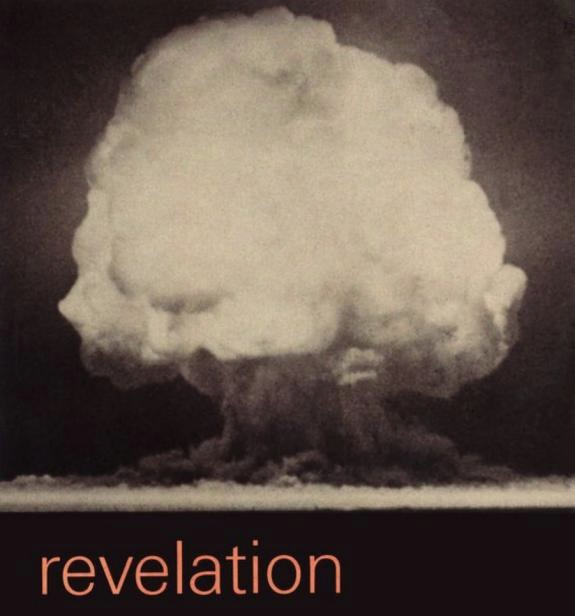Revelation 1: From Bafflement to Wonder

Bafflement
During the retreat I was on last weekend with other young leaders led by Parker Palmer and Marcy Jackson, Parker mentioned that he never writes books about things he knows, he only writes on things that baffle him.
You know the difference?
You never google the stuff you are sure of, it’s only the stuff where there is a little bit of a question or uncertainty that prompts you to look something up. But it’s more than that too: I think he means that those things that come easy for you. The things that you could do in your sleep. Aren’t they often the things that have little life in them? The easy stuff doesn’t really energize us.
It’s the challenging stuff that wakes you up and leaves us laying in bed all night mulling them over. Those things that baffle you, that confuse you, that you can’t quite get a grip on, there’s life in that. It might sometimes feel stressful, it might not always be clear the solution, but I have found at least for myself that it is usually in this bafflement that I come alive.
Here are some other words for baffle: puzzle, bewilder, mystify, bemuse, confuse, confound, disconcert; informal flummox, faze, stump, make someone scratch their head, be all Greek to, floor, discombobulate.
We need things that baffle us and in our spiritual lives especially. This is why the focus of the messages over the next two months is going to be The book of Revelation.
In fact many of the words for baffle above are the same words we might use for Revelation.
Friedrich Nietzsche considered Revelation to be “the most rabid outburst of vindictiveness in all recorded history.”
And another person has called it a “script for a horror movie.”
There is no other book of the Bible that baffles me more than Revelation. Even thought I have been studying the bible academically and as a minister since 1997, a lot of this baffles me still and yet this is part of what I love so much about it.
And so of course, after hearing Parker Palmer talk about the importance of bafflement I knew right away that this was the direction we were supposed to take.
I am convinced – and I hope to convince you – that the Bible is not a book to use or to extrapolate information out of but rather a book that is meant to help us listen to God.
Revelation is of course a perfect test case for bafflement – what if instead of avoiding what challenges us we met the challenge with imagination and curiosity? I think that by reflecting and listening to these texts over the next few weeks we will be helped in our listening to God and in our own relationship to scripture.
We were not the intended audience of Revelation
So the first observation I want to make about the book of revelation is very simple: it wasn’t written first and foremost for you and me. It’s not our book. It’s not meant to predict the future. It doesn’t represent our world. At least not at first. And we have a lot of work to do if we are to get to the bottom of what is going on in this book.
Read 1:3-8: “Blessed is the one who reads aloud the words of the prophecy, and blessed are those who hear and who keep what is written in it; for the time is near. John to the seven churches that are in Asia…”
“We were not the intended audience of Revelation” as Eric Barreto, a NT professor, puts it.
This is to say that when John was imprisoned on the island of Patmos and had this divinely inspired day dream, what he wrote down was first and foremost for the churches he was a pastor of in Asia Minor.
The biblical text is always first and foremost a localized, historical work. The bible teaches us that God always speaks directly to the people where they are at, what they are facing, their fears and their celebrations.

Where you live, where you pray is essential to who God is and reveals himself to be (E. Peterson).
We have often treated the Revelation as a code that is to be broken as though it were a math formula to solve our problems. This matches this, that matches that and whallah Jimmy Carter is the Anti-Christ.
We should not be tricked into this way of reading any of the bible – as though it holds a secret or that it is detached from the people who it was written for (Luke 12:2). As much as I love math – Faith is not a math formula. As we read through these passages let me encourage you to avoid the revelation as code approach.
And yet we have to recognize that when we read it not only are we are not the intended audience for this book but that its meanings are not easy to get at.
One of my professors in seminary liked to talk about Revelation as a kind of political cartoon. Until we are well-acquainted with the people and the times it was written to the joke will be lost on us (Reading Facebook in 2000 years).
Of central importance is knowing that John wrote a letter from prison to a several tiny, powerless communities, that were minorities in their culture and were being harassed and even killed by the powers of empire. Much to the contrary of what we have often been taught, Revelation’s sympathies lie with the marginalized and the persecuted within the dominant Roman empire (181). The original hearers of the Revelation were not unlike the Hebrew people in Exodus, or early Anabaptists in Germany, or Early Quakers in England, or African-Americans prior to emancipation and civil rights, and we could go on…
John’s letter is similar to Martin Luther King’s Letter from Birmingham prison, smuggled out on napkins, aimed to encourage a minority people to not give up hope in the struggle for peace through nonviolence. In fact, that is the basic overall message of Revelation.
Don’t give up, do not fight back, follow the way of the slaughtered lamb.
For (NT Scholar) Elizabeth Schussler Fiorenza says:
Something very strange happens when happens when this text is appropriated by readers in a comfortable, powerful, majority community: it becomes a gold mine for paranoid fantasies and for those who want to preach revenge and destruction.
Feeling adequately baffled yet?
One lesson I am able to take away from this
We have to be careful that we don’t confuse reading the bible with understanding the bible. We have to be careful how we interpret what these words say and who we think they apply to. We have to be extra cautious about assuming that what we read on face-value has direct correlations to society today.
So the question for us is what did the original hearers hear and how does this work in the community of believers of which we are a part?
Imagination
In fact, Revelation, if we allow it, can sharpen and enliven our imaginations.
John begins by saying “I was in the Spirit on the Lord’s day,” which to me sounds a lot like when we talk about being fully yielded to God’s spirit, fully aligned within our inner and outer selves so that we are able to listen and hear God’s word to us?
Revelation revels God’s concern for his people who are crushed and marginalized by those in power. It shows who God sides with.
It is a letter of hope and courage to a people whose way of life and understanding of God was the cause of cruelty, imprisonment, and hatred.
It is a letter meant to spark the imagination of nonviolent resistance. The central image that forms the Christian imagination is the “Lamb that was slain,” the lamb who did not fight back, who was slain, and who God honored as the innocent victim. This is a total reversal from humanity’s constant effort to project on and blame the scapegoat.
These are the words being smuggled on napkins to small bands of Christians taking on a force more powerful and terrifying than anything they could imagine.
They call its readers to be in solidarity with one another no matter how distressing the situation becomes. And to know that the time of Jesus present with us is at hand.
Eugene Peterson says this:
I do not read the Revelation to get additional information about the life of faith in Christ. I have read it all before in the law and prophet, in gospel and epistle. Everything in the Revelation can be found in the previous sixty-five books of the Bible. The Revelation adds nothing of substance to what we already know. The truth of the gospel is already complete, revealed in Christ. There is nothing new to say on the subject. But there is a new way to say it. I read the Revelation not to get more information but to revive my imagination (xii-xii). It is not a question of what does this mean, but rather how does this work in our community of believers? It is not a code to be broken but a book meant to evoke our wonder (xiii).
Revelation teaches us that the remedy for Bafflement is wonder. I hope that you will allow this time of reflecting on Revelation to evoke wonder in you and to help shape your imagination for the ways in which God can move and change us.